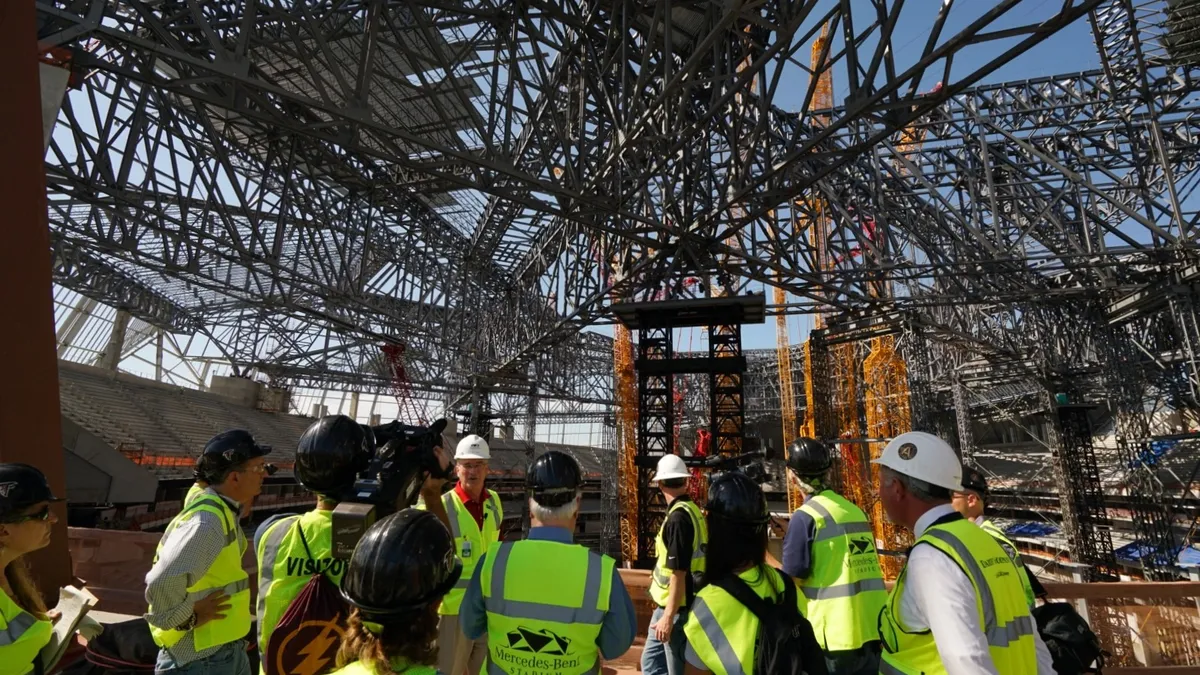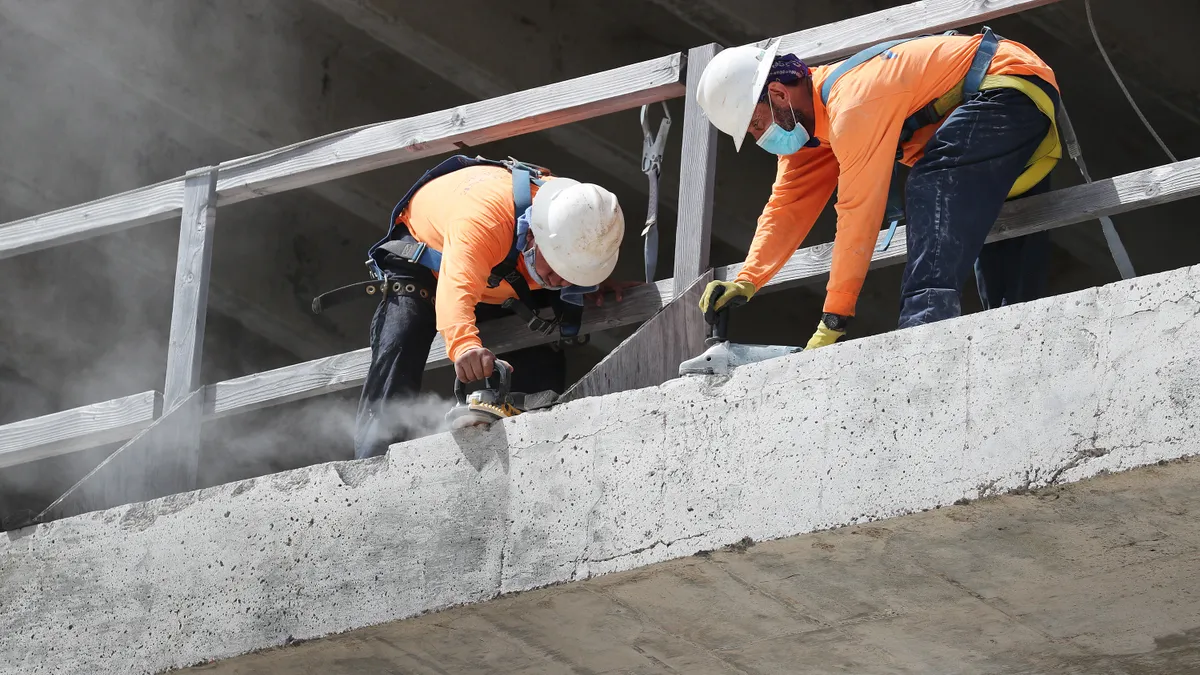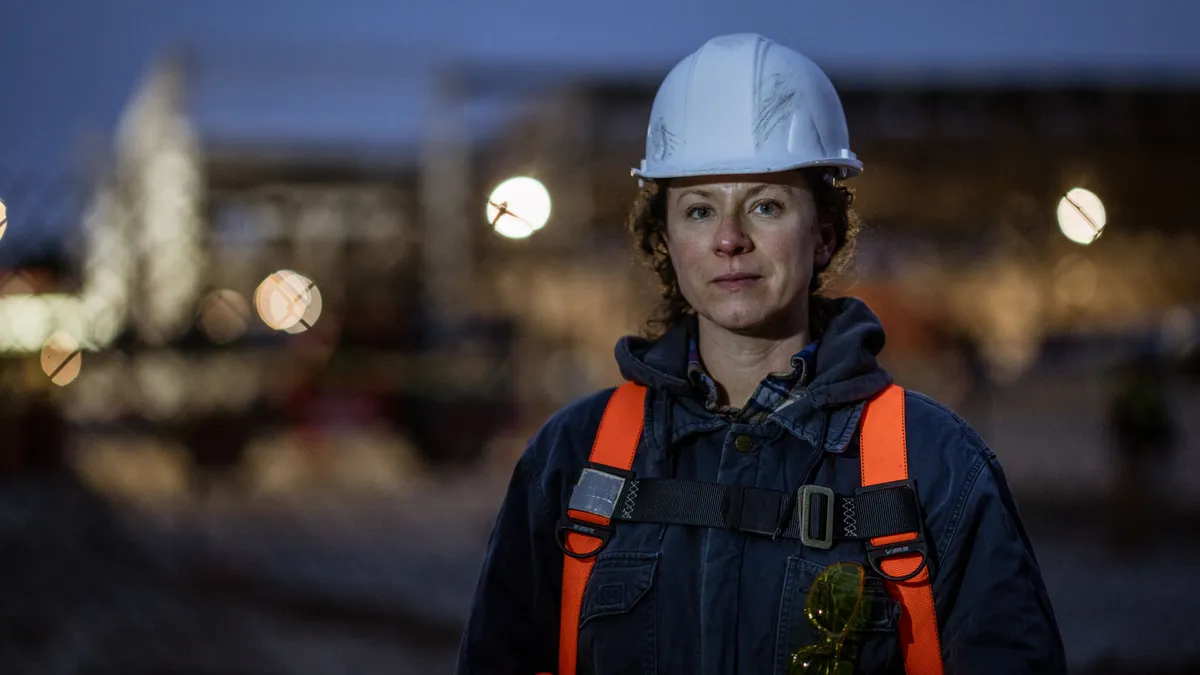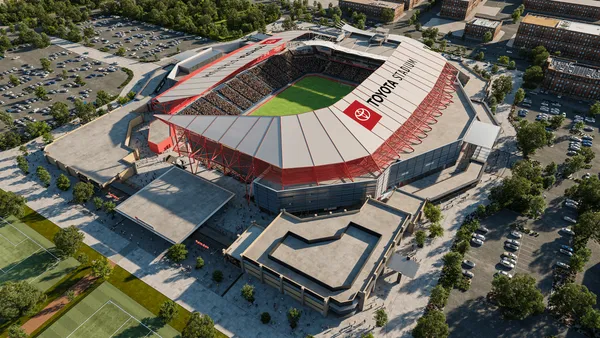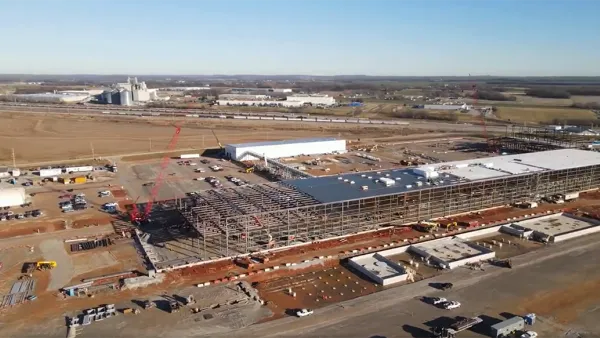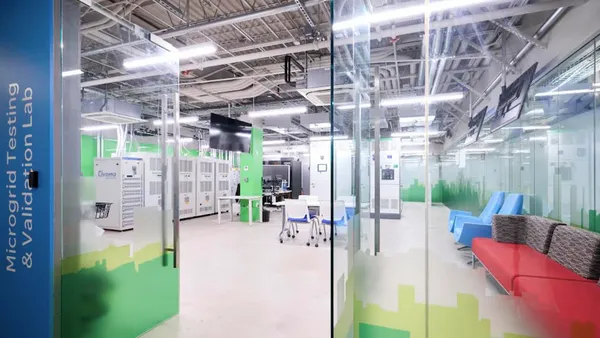Dive Brief:
- Mercedes-Benz Stadium officials have announced that issues with the retractable roof will delay the $1.5 billion venue's opening for a third time, according to The Atlanta Journal-Constitution.
- Atlanta Falcons officials said the new opening date has been pushed from July 30 to August 26, when the NFL team's first preseason game is scheduled. A spokesman said the roof's steel work is taking longer than anticipated, and extra time is required to adjust the signature design so that the interlocking "petals" fit with each other.
- The roof has been the source of all the announced project delays thus far. This latest postponement means that Atlanta United, scheduled to begin playing at the stadium in July, will play elsewhere until the facility is open.
Dive Insight:
It was just a few weeks ago that stadium officials floated the possibility of a change to the July 30 opening date amid rumors that the roof was not going to be complete. This latest delay pushes the opening almost five months behind schedule.
However, even the August 26 opening date doesn't appear to be 100% firm, as team officials said the demolition of the Falcons' former home, the Georgia Dome, has been put on hold as "an insurance policy" in case the team has to start out the season there. The Georgia Dome field has already been removed, as well as other equipment that would have to be returned so that the Falcons could play there, according to USA Today.
The roof design, while troublesome up to this point, is the focal point of the project. It is designed to open and close like the aperture of a camera lens, necessitating precision in design and installation. The steel delivery was also a challenge. Team officials said the manufacturing of roof material had to be coordinated between 32 factories in the U.S. and Canada.
When complete, the venue will be the first LEED Platinum–certified stadium and the first sports facility to earn all of the U.S. Green building Council's available water credits. The project also received recognition from the White House last year when the Office of Science and Technology Policy used the stadium — which will have solar-powered electric-vehicle charging stations and solar panels — as an example of sustainability.


